The Interview - Putin sings “Can’t we all just get along?”
Two things I wish Tucker could have explored in The Interview
The establishment media complains that the perfidious Tucker Carlson interviewed the Russian President-for-life Vladimir Putin in the Kremlin. The two-hour interview is now posted on the X, the platform for all things perfidious and contrary to Our Democracy™. The establishment cannot tolerate the wrong people interviewing other wrong people at the wrong time.
That said, after all of the hype, I admit some disappointment with The Interview, because I did not learn anything. I did not hear anything that would have enabled me to refine or disrupt my understanding of what the war in Ukraine is about or about how it could be wrapped up. But the interview did inspire some thinking about how and why Ukrainians differentiate themselves from Russians. Basically, how distinguishable does one group have to be from another group such that the everyone agrees that the two groups constitute two, distinct groups? Consider that groups sometimes grow apart or merge and assimilate. A lot of people with heritage derived from the British Isles, for example, could ultimately trace much of their heritage back to Viking roots, but those people don’t identify as Scandinavians, do they? Even I likely have some Viking heritage traced back to the Shetland Islands of Scotland.
I bring this question up, because Poo-tin opened the interview with a breezy dissertation about the sources of Russian identity going as far back as 9th century Kievan Rus. The Rus also have Viking heritage as Scandinavians made their ways up and then down rivers (with some laborious portages in between) linking the Baltic to the Black Sea. It was all about trade—fur trade and such—linking the Baltic to Constantinople. Some violence might have been involved, but, ultimately, the Rus established themselves on hills on a plain overlooking a great bend in the Dnipro River. They thus afforded themselves a defensible site looking out on steppes reaching out to the horizon in all directions. This was Kiev.
Putin made some contact with this all in the service of a narrative about how the concept of “Ukrainians” is a little artificial; Ukrainians are really just Russians who have been getting by—farming, subsisting, fighting off invaders from the Asian Steppes—while living way out there on “the borderlands” (Na Kraina). No wonder we used to call Ukraine “The Ukraine,” but that is no longer politically correct, because (I am guessing) it suggests that Ukraine constituted the “border,” and thus a part, of some larger agglomeration (Russia).
My own guess is that living on the borderlands really did inspire a distinct, regional identity. It inspired a frontier identity that really did go some way toward distinguishing the peoples living and fighting to live on the borderlands from peoples living more in the direction of Moscow and the Baltic. In pre-history, the Steppes may have constituted a barrier to human development, but once people started raising animals that could thrive on the grasslands that are the Eurasian steppes, the steppes started to become not a barrier but a super-highway linking China to Central Europe and to everything in between. The peoples first to develop a horse culture would be the first to fully exploit that super-highway. Vikings may not have come out of a horse culture, but the peoples in the borderlands surely had to organize themselves around a horse culture in order to fight off horsemen coming along the super-highway from East, West and North. The horse culture of the Cossacks derived from expedience.
Our propagandistic news media will dismiss Aleksandr Dugin as Putin’s Rasputin, and I cannot claim really to know more than few superficial things about Dugin, but I submit that this business of Ukrainian identity being a little too artificial and strained seems consistent (as far as I understand it) with Dugin’s concept of Russian identity. I would say, however, that the Russians themselves did make the most vivid case for a distinct Ukrainian identity by going far out of their way in the 1920’s and 1930’s to kill Ukrainians by the millions. This stuff may be fading from living memory, but it has not faded from historical memory, and it did alienate Ukrainians from Russians. Efforts in the immediate succession of the Bolsheviks to collectivize agriculture (early 1920’s) will have deeply strained the relationship of The Borderlands to The Center. The resulting Peasant War ended up stalling the collectivization program, but, by the time Stalin and his people secured control of the levers of government (about 1928), The Center had prepared itself to take up its collectivization program again, and this time it was ready to suppress the inhabitants of the borderlands. Among other things, The Center reorganized the system of labor camps into the Main Camp Administration or G.U.L.A.G. (ГУЛАГ). The Center made a point of designating inconvenient peasants as “Kulaks,” of which one-third would be summarily executed, one-third sent off to the ГУЛАГ, and one third resettled on collectivized farms just so that there would be witnesses to warn others what could happen to them were they to decide to make themselves inconvenient.
I would suggest to “Putin” that it would not have been necessary to erect monuments to Ukrainian and Russian brotherhood if there really had been a lot of goodwill to pass around. There wasn’t.
The Ukrainians have not forgotten. And they should not forget. Millions died in the camps. Millions more starved to death as collectivization destroyed the productivity of the agricultural sector. That’s surely one reason Ukrainians were inspired to fight Russians.
The second thing about The Interview that I found disappointing was that Tucker didn’t manage to explore what resolution to the war would look like. The outlines of an enduring peace have been obvious for years, and Zelenskyy and his Servant of the People party came to power in 2019 on a platform that included a commitment to resolve the war in the Donbass. That war had been simmering since 2014. A deal would likely have involved ceding the oblasti of Donetsk and Luhansk as well as giving up claims on the Crimea. Further, Ukraine would commit to neutrality and would not join NATO. It would thus become a buffer zone between the US/EU/NATO bloc and Russia.
I myself had witnessed two sets of boisterous protests in front of the Ukrainian parliament, the Rada, in late 2019. One set of protests involved forthcoming “Land Reform” legislation. The other protests involved the plan to secure some type of rapprochement with Russia. There really had been a loud and sizable block of people who furiously opposed cutting any deal that would cede any territory to Russia. Of those people, I wonder how may have survived to date and would yet persist in demanding that Russia give back the Donbass and the Crimea.
As of the writing of this short account, the US Senate has approved another $60 billion for Ukraine. (We will see where this legislation goes in the House of Representatives.) How much more money and how many more dead Ukrainians will the Americans and their European cohorts throw at the Russians in a losing campaign in Ukraine? “Lions led by donkeys.” We can sit around, read histories of how stupid the First World War was and nod approvingly. But here we are immersed in Our Own Stupid. Because Our Democracy™. Right?
On the horse culture of the steppes, let me recommend the earliest episodes of The History of English Podcast. It’s Excellent.
On the organization of the G.U.L.A.G, let me suggest The House of Government (Slezkine 2017), especially pages 416-17.
On the predations of the Stalinist state in Ukraine in the 1920’s and 30’s: The Harvest of Sorrow (Conquest 1986).
Let me close with a few nicer images of Kiev in 2019:
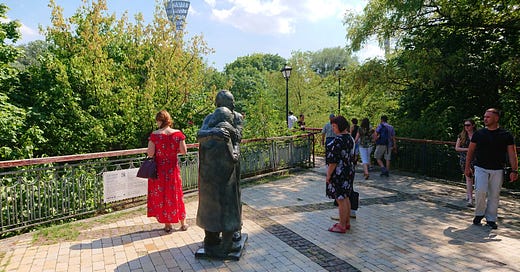


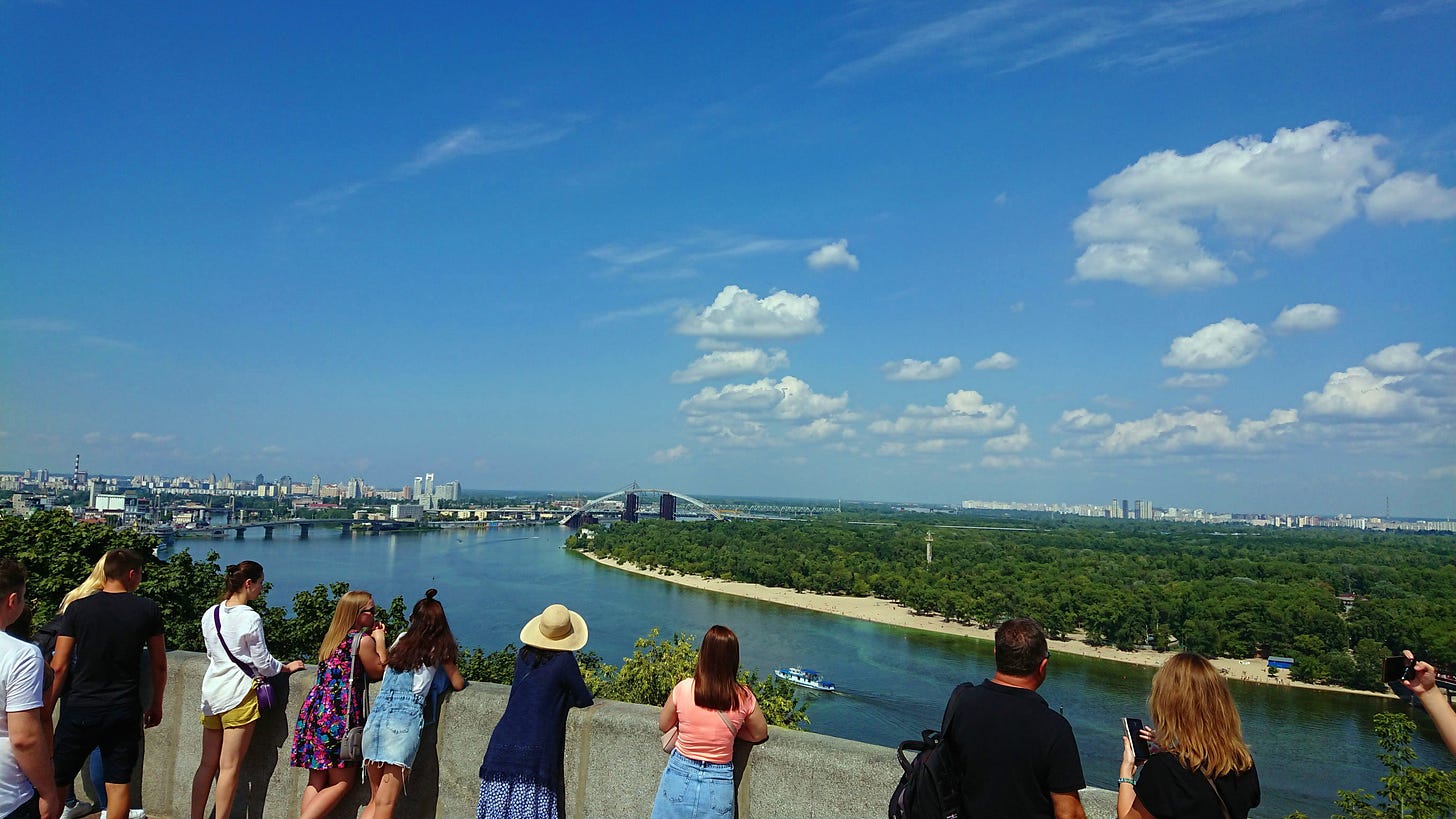
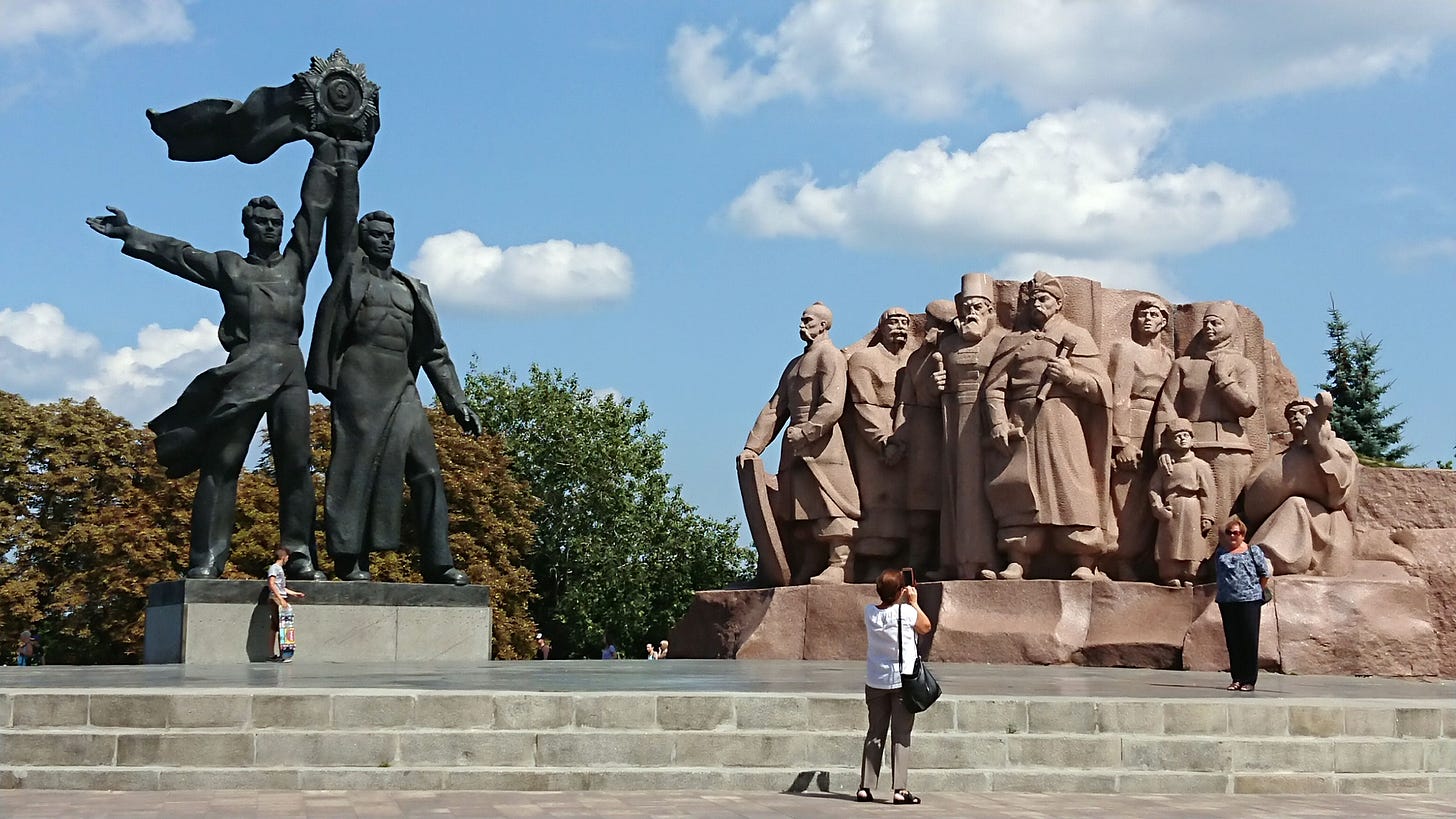
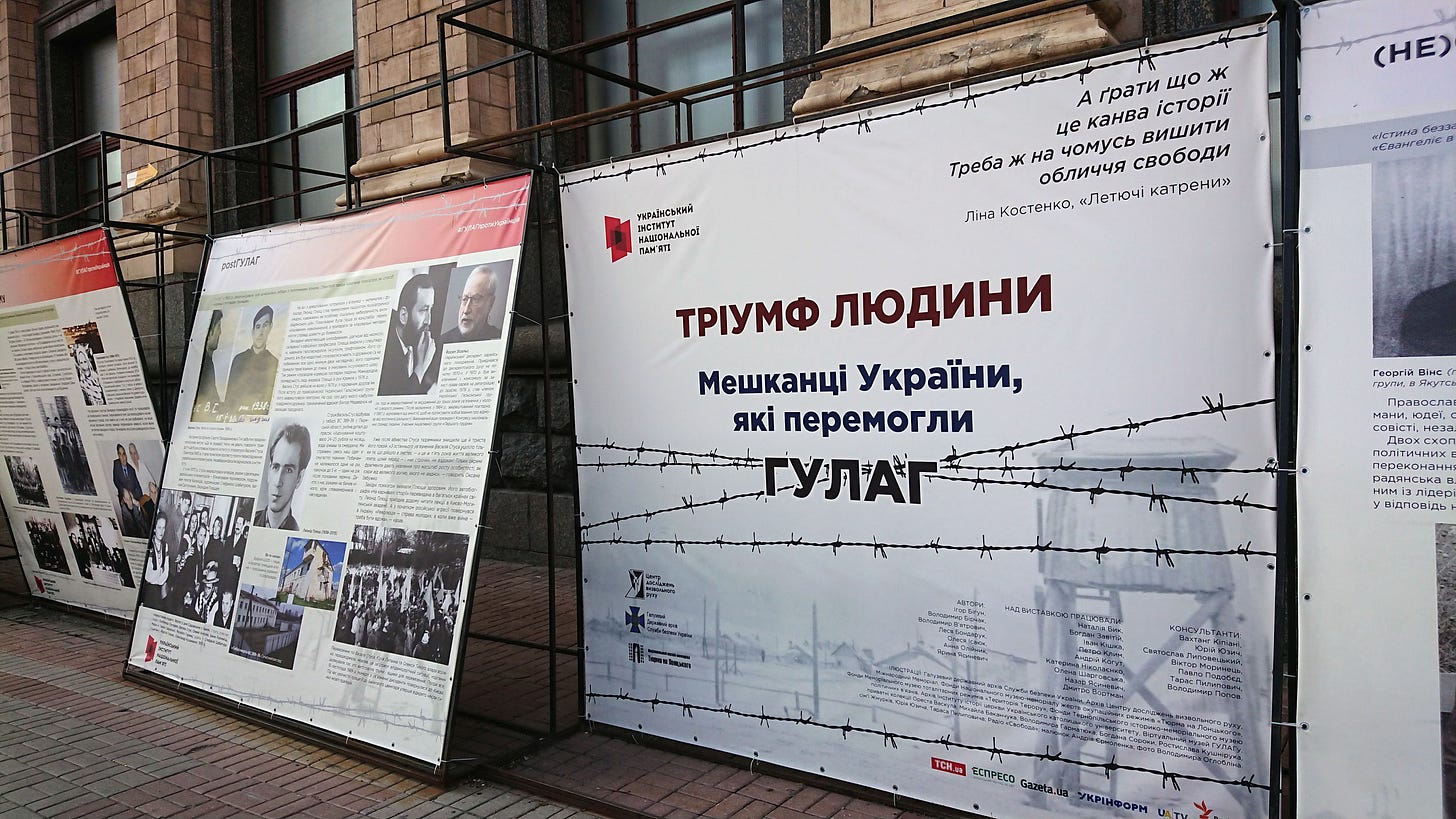
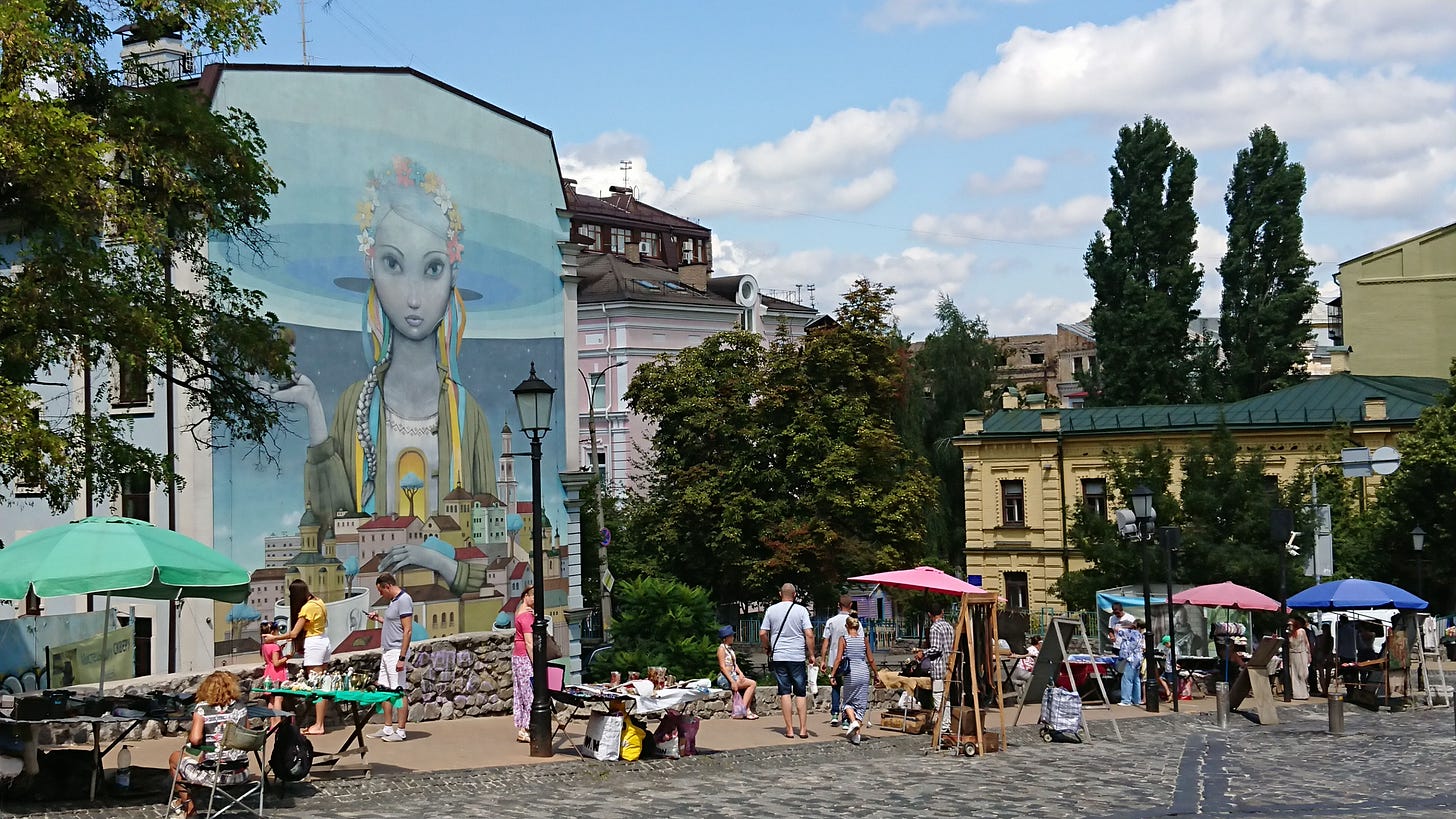
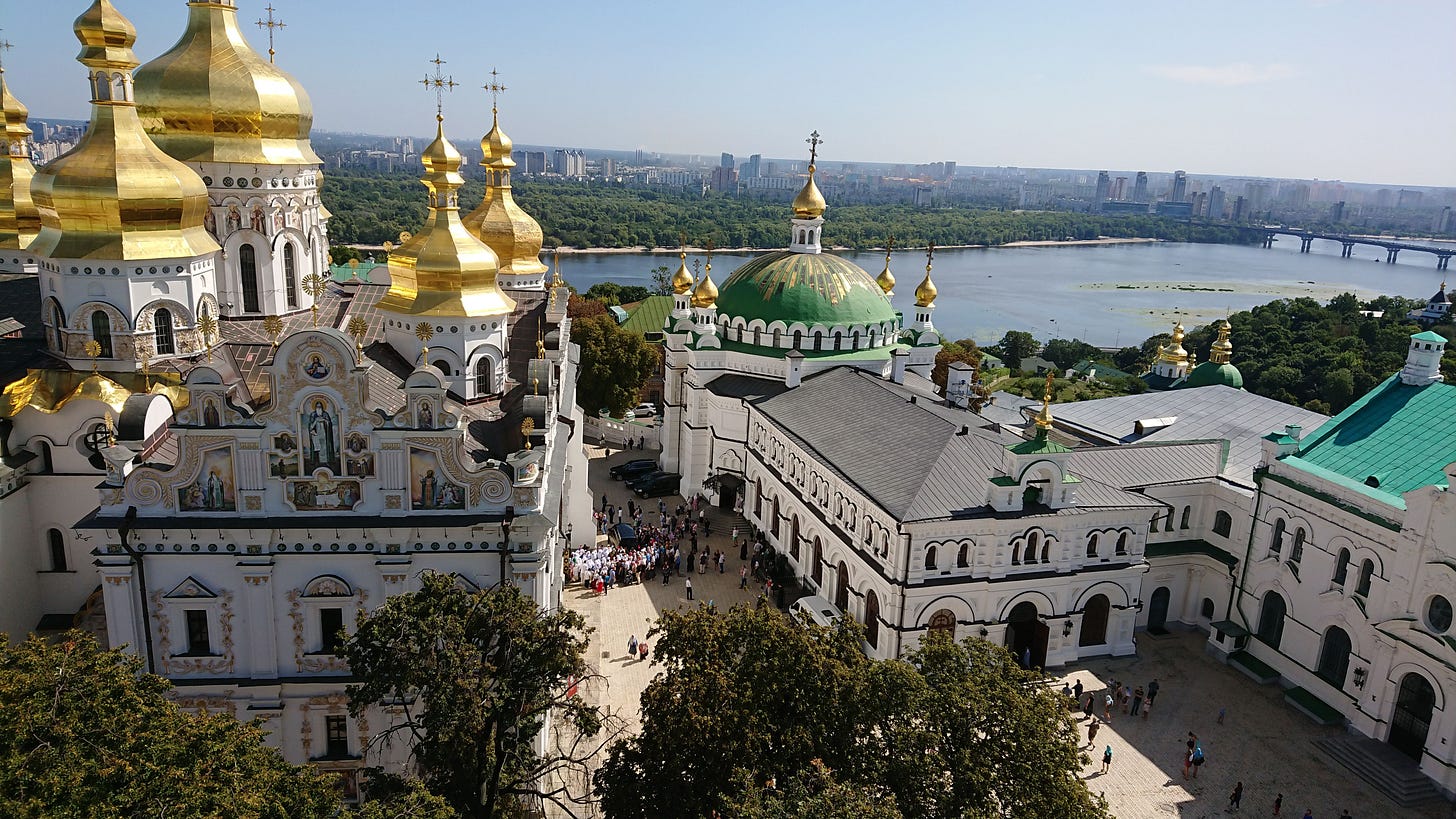
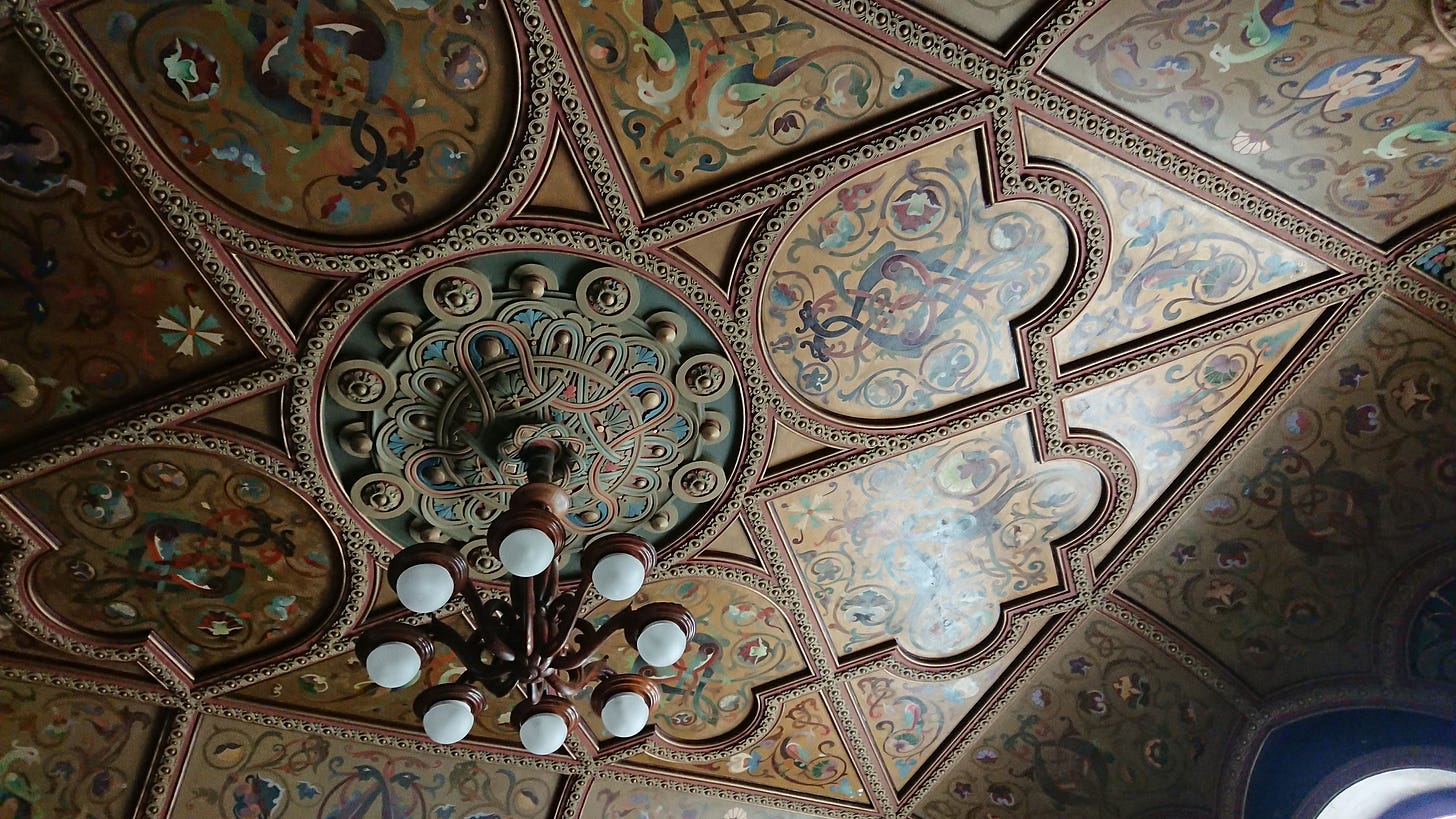
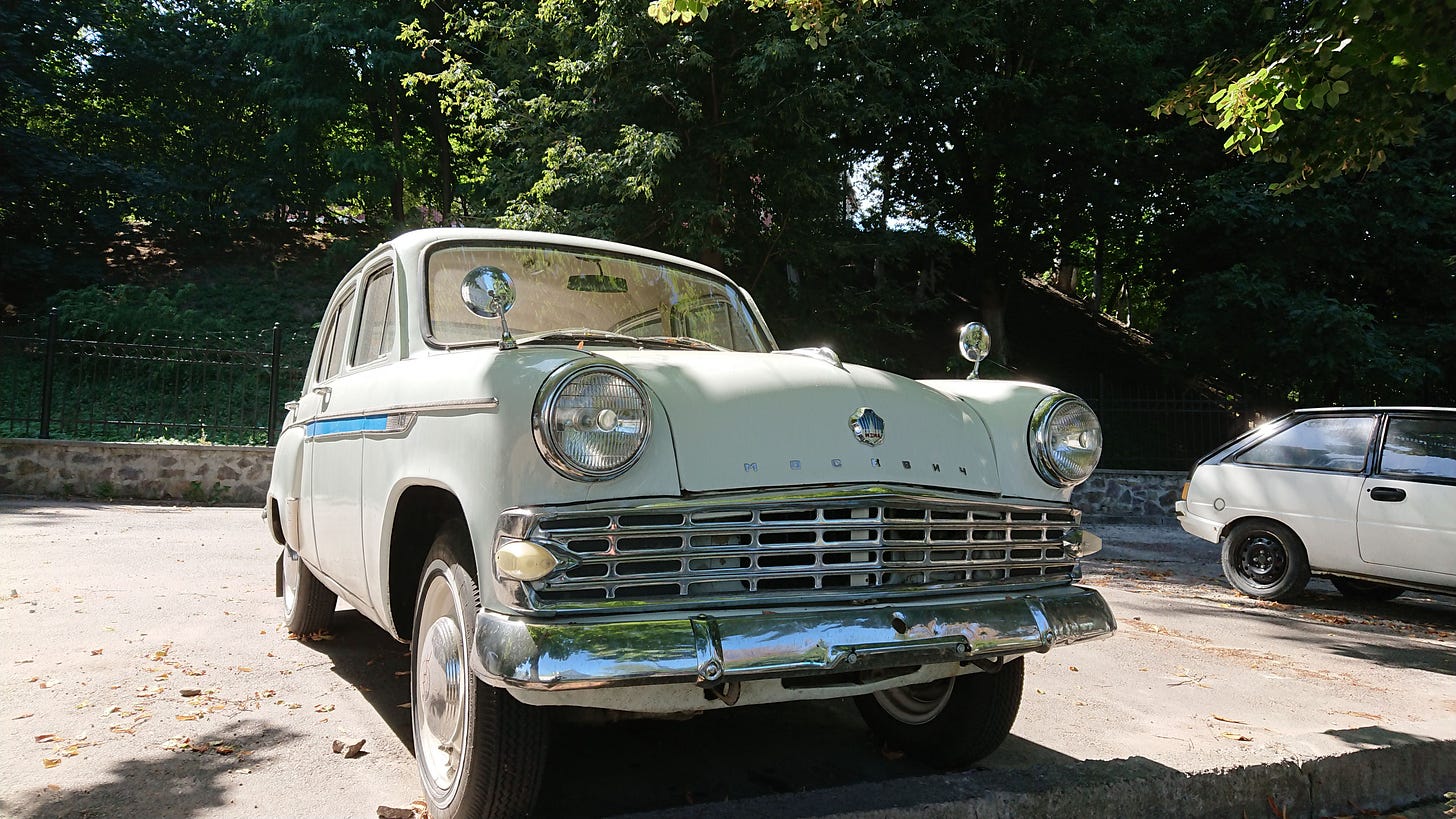

I think Tucker was unprepared. He did not have enough knowledge of even more recent history to be able direct the discussion or to counter much of anything Putin said. Putin took control of the conversation. My big takeaway was that Putin is just like our politicians: lie, lie, lie, yada, yada, yada. Main difference being that Putin routinely kills those who oppose him. Ours are just corrupt and at the stage of using lawfare against those who oppose the favored ideology.
One thing I have come to realize about Tucker. He is much like the rest in the media. He has his own agenda. He'll do and say whatever to elevate his brand. He's a bit of a grifter. Why didn't he take Trump to task on his Operation Warp Speed when he spoke out so much about it when on Fox. He had many experts talk about how problematic the vaccines have been. Yet, since he left Fox, he's on the Trump train, as if all he said previously is no longer relevant.
His schtick is to instill controversy which elevates his brand; nothing more, nothing less.